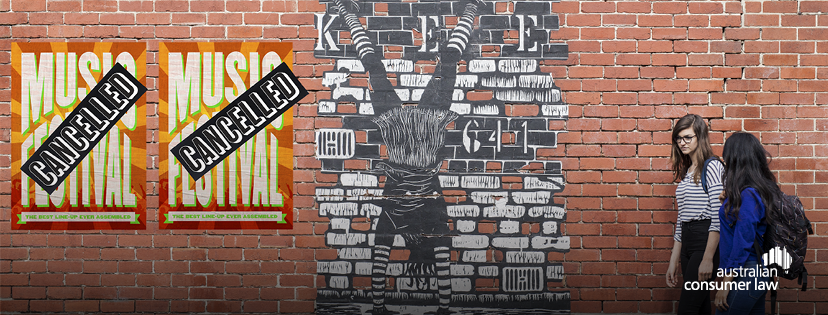
Do your research
Check the line-up acts, or stall holders’ social media accounts and official websites to confirm their attendance. Call the venue to confirm that the event is taking place and who the authorised seller of tickets is before deciding to purchase. Find out when tickets officially go on sale. If you see tickets on sale before the official date, be cautious as they could possibly be fake. Be wary of events that:
- have no venue announced
- only provide limited contact details
- have only tentative dates
- have unusual payment processes (such as no official ticketing agent, requesting cash only or bank transfers)
- have received lots of complaints or bad reviews online.
Read the terms and conditions
When you buy a ticket, you are entering into a contract with the company you bought it from. Your ticket has terms and conditions that explain what your ticket gives you, including refunds and compensation if something goes wrong or changes. A company cannot waive their responsibilities under the ACL. If you buy a ticket to a festival or event and it is either cancelled, or has a major change (such as a headlining act will not perform, the date changes or the venue changes to a location much further away), you are entitled to a refund of the ticket. This is regardless of whether the terms and conditions say so. Just like any other purchase, hold on to your receipts and ticket details. If something goes wrong, speak to the company where you bought your ticket first. For more information, check out the ACL guide to Consumer Guarantees.
